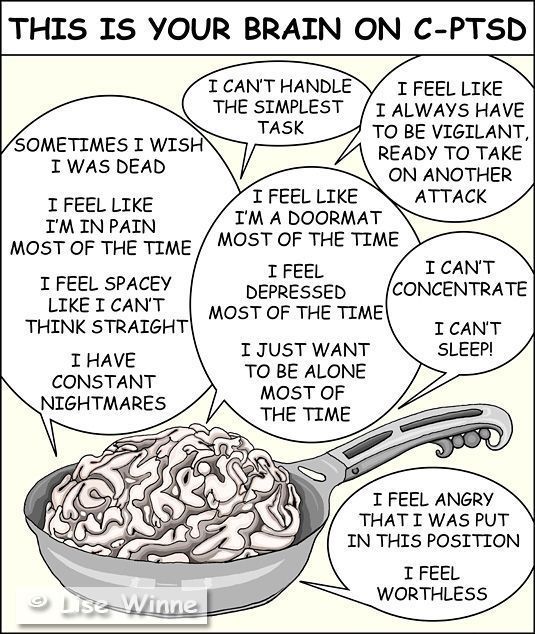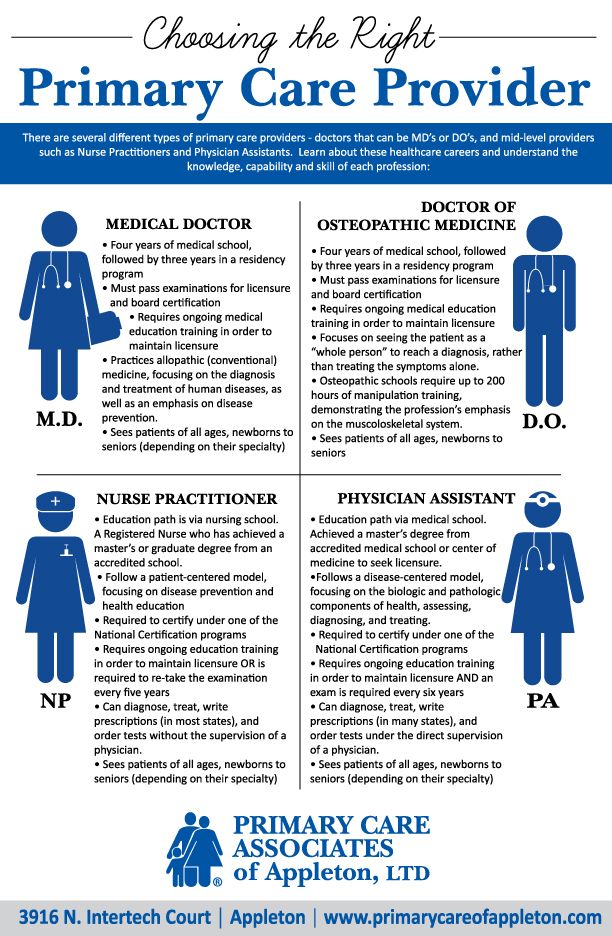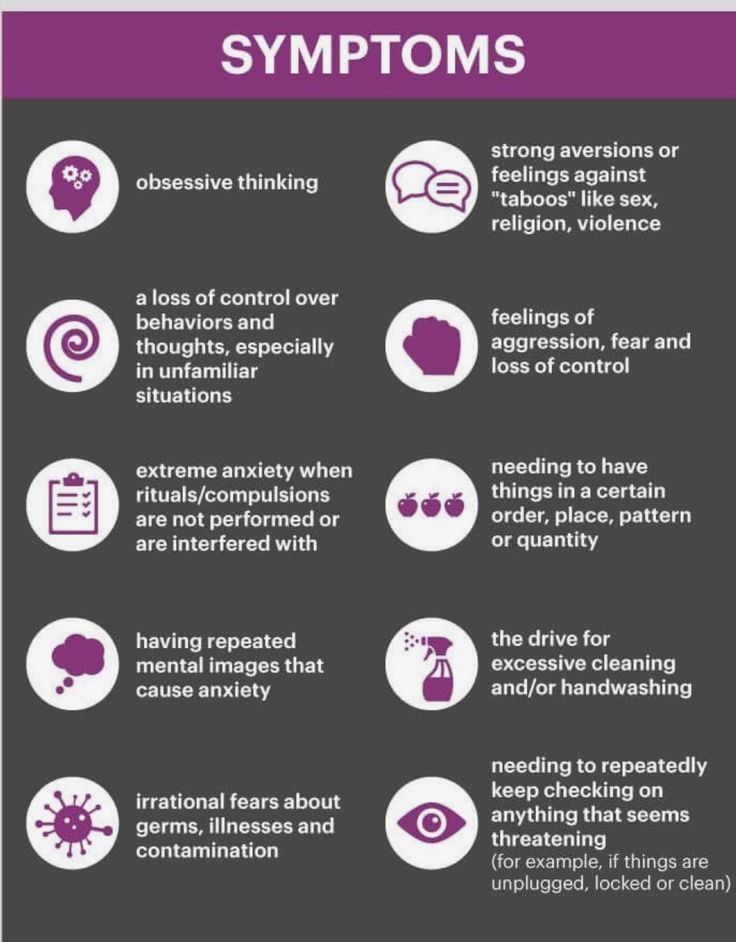Best healthcare careers for introverts
4 Intriguing Healthcare Careers for Introverts to Consider
Working in a quiet environment is the ideal scenario for you. You’re perfectly content just focusing on your work without a ton of social stimulation. It’s not that you dislike interacting with other people—it’s just that too much of it makes you feel a strong urge to recharge alone. You’ve learned that situations involving too many people make you feel drained, and you’d rather not deal with that every single day at work.
When you look around at job options, healthcare keeps rising to the forefront of your mind. But are there good healthcare jobs for introverts?
It’s true that when thinking of healthcare careers, the nurses, medical assistants and pharmacy technicians that may immediately spring to mind seem to interact with people day in and day out. But don’t let that lead you to believe introverts can’t find a good fit in healthcare—there’s huge diversity of healthcare careers out there, and several options can mesh well with an introverted personality.
Pair that variety of roles with a healthcare field that’s continuing to grow—the Bureau of Labor Statistics (BLS) projects healthcare occupations to add approximately 2.6 million new jobs from 2020–2030—and that’s good news for you!1
4 Careers in healthcare for introverts
Like it or not, human interaction is obviously going to play a role in every career—there’s no escaping it. But that doesn’t mean you need to be stuck in a healthcare role that forces you to be “on” socially at all times. These positions typically offer a balance that most introverted people can thrive in:
1. Medical lab technician
Have a knack for science? Did you love biology class in high school? Medical lab technicians work in a laboratory with all the test tubes and advanced technical equipment a chemistry or biology fan could wish for. They play an important role in saving the lives of patients, but instead of working with them face-to-face, they’re in the lab taking care of important diagnostic work like analyzing samples of blood and tissue.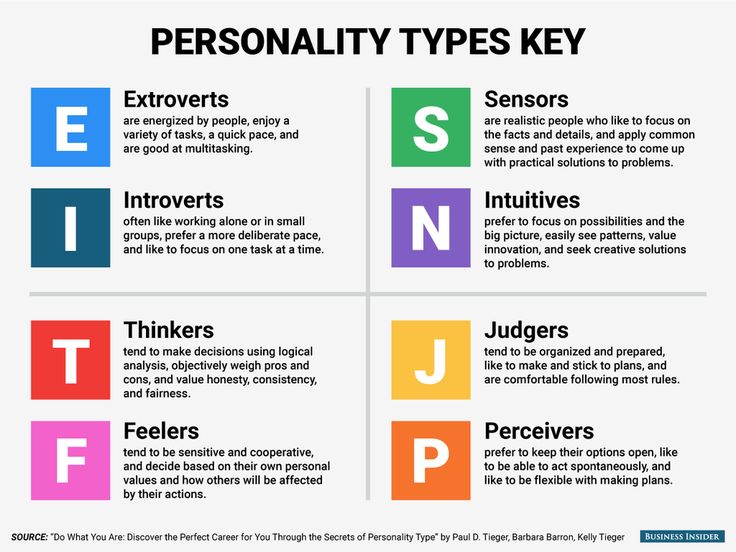
Why it’s a good job for introverts: The behind-the-scenes nature of this position can be the perfect fit for an introvert. Whether you work in a hospital or clinic, the medical labs are set apart from patients and the general hubbub of the facility.
You’ll also be able to maintain a sense of independence in the lab while testing samples that are essential to diagnosis. While you’ll likely work under the supervision of a lab manager, much of your work will be done independently in the peace and calm of the secluded lab.
2020 Median annual salary (BLS): $54,180 (clinical laboratory technologists and technicians)1
Job outlook: Employment of clinical lab technologists and technicians is projected to increase at a faster-than-average rate of 11 percent from 2020 through 2030, according to the BLS.1 This projection is tied to the aging population and an anticipated need to test for medical conditions like cancer or type 2 diabetes.
Potential education pathway: Medical Lab Technician Associate’s degree.
2. Health information technician (and related roles)
If you have an interest in technology and working behind-the-scenes to keep key patient information flowing, you might want to look into health information technician (HIT) roles. Our healthcare system depends on health information professionals like medical coders, cancer registrars and health information technicians to accurately document and relay critical patient health and billing information.
Why it’s a good job for introverts: HITs focus their time and energy on healthcare documents and records. This is a great job for introverts, as you work primarily with organized systems and patient records rather than the patients themselves. That being said, some roles may require interaction and coordination between stakeholders like insurance carriers and healthcare providers.
2020 Median annual salary (BLS): $45,2401 (for medical records and health information specialists)
Job outlook: Employment of medical records and health information specialists is projected to grow by a nine percent rate from 2020 through 2030, according to the BLS.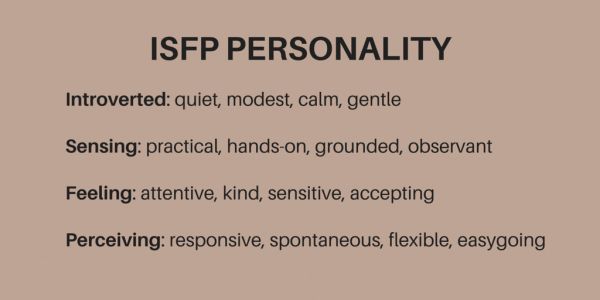 1 Once again, the aging population and the prevalence of electronic health records will create continued demand for professionals who can maintain these systems.
1 Once again, the aging population and the prevalence of electronic health records will create continued demand for professionals who can maintain these systems.
Potential education pathway: Education requirements will vary for health information management, with undergraduate options ranging from a Medical Billing and Coding Certificate program to a Health Information Management Bachelor’s degree.
3. Radiologic technologist
If you’re looking for a job that comes with a unique point of view, you’re in the right place. Radiologic technologists are the medical professionals responsible for performing diagnostic imaging examinations on patients. This can include X-rays, MRIs and other advanced imaging methods.
Why it’s a good job for introverts: While this role does include some patient interaction in that you’ll work with them to explain the procedure and make sure they’re positioned correctly, it’s relatively limited and routine compared to many other patient-facing roles. You focus on getting the necessary images and making sure the patients are at ease—you’re not breaking bad health news to them or tackling other unpleasant social interactions.
You focus on getting the necessary images and making sure the patients are at ease—you’re not breaking bad health news to them or tackling other unpleasant social interactions.
2020 Median annual salary (BLS): $61,900 (radiologic technologists and technicians)1
Job outlook: Like many other healthcare careers, the job outlook for radiologic and MRI technologists appears fairly strong. The BLS projects employment of radiologic technologists and technicians to grow nine percent from 2020 through 2030.1 The healthcare industry overall is facing some strain keeping pace with a large aging population, and that holds true for this role.
Potential education pathway: Radiologic Technology Associate’s degree.
4. Surgical technologist
If you’re organized, good at staying composed under pressure and aren’t squeamish about blood, working as a surgical technologist could be a great fit for someone like you! These professionals play the critical role of assisting with surgeries, preparing and sterilizing the operating room and its equipment, and assisting surgeons during surgery.
Why it’s a good job for introverts: Surgical technologists will spend some time with patients but often when those patients are unconscious with anesthesia. They work with a limited number of people to keep numbers in the operating rooms small, and much of their day involves maintaining the surgical environment. There’s typically plenty of quiet, hands-on time where chitchat is discouraged since everyone needs to focus. That said, you will want to keep a strong working relationship with the surgical team.
2020 Median annual salary (BLS): $49,7101
Job outlook: Employment of surgical technologists is projected to grow nine percent from 2020 to 2030, according to the BLS.1 This is due in part to the aging population that will likely require more surgeries like joint replacements or cataract removals as they get older—as well as advances in surgery that make it a safer, more viable option for certain illnesses and problems.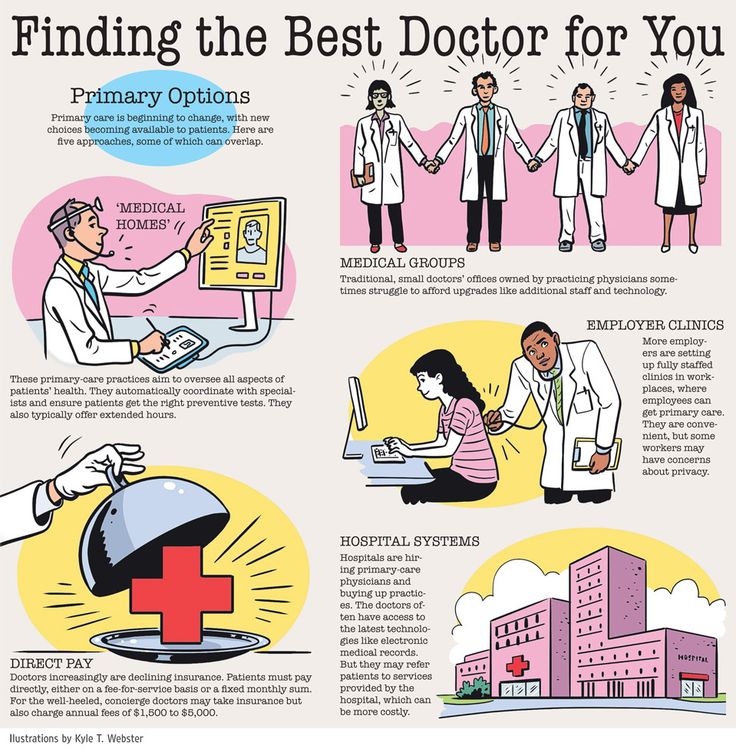
Potential education pathway: Surgical Technologist Associate’s degree.
The lesser-known jobs in healthcare
Many people fail to realize these medical careers exist because these professionals tend to fly under the radar when they’re making a visit to a clinic or hospital. But now you know about these opportunities in healthcare that could be an ideal match for your personality. Healthcare is a broad field, and there are plenty of jobs for introverts that could be stable, interesting and not too much of a drain on your figurative social battery.
Did one of these options stand out to you in particular? Learn more about what opportunities lie ahead in these four careers:
- Could a career in the lab be in your future? Learn more about these behind-the-scenes professionals with our article “What Does a Medical Lab Technician Do? (A Closer Look).”
- Think a health information role may be the route for you? Take a deeper dive into these roles with “Health Information Career Paths: Exploring Your Potential Options.
 ”
” - Did the work of a radiologic technologist catch your attention? Check out our article “7 Appealing Advantages of Being a Radiologic Technologist.”
- Did the surgical technologist role sound interesting? Check out our article “6 Enticing Reasons Why Becoming a Surgical Technologist Is Worth It.”
1Bureau of Labor Statistics, U.S. Department of Labor, Occupational Outlook Handbook, [accessed March 2022] www.bls.gov/ooh/. Information represents national, averaged data for the occupations listed and includes workers at all levels of education and experience. Employment conditions in your area may vary.
EDITOR’S NOTE: This article was originally published in 2015. It has since been updated to include information relevant to 2022.
15 Rewarding Careers for Introverts in Healthcare
Being an introvert doesn’t mean you can’t find a great career in healthcare. In fact, some introverts naturally excel at jobs that require meticulous attention to detail and an analytical approach. Introverts can also be extremely empathetic, making them great for positions in patient care.
Introverts can also be extremely empathetic, making them great for positions in patient care.
If you’re an introvert looking for a career in healthcare, you may want to avoid any high-energy positions that require you to make quick decisions. For example, a position as a nurse in an emergency room may cause you to feel anxious and stressed, where you would thrive in a position as a school nurse at an elementary school.
If you identify as a highly sensitive person, you may want to avoid these jobs.
It is important to consider your unique personality and determine what environments will feel the most comfortable for you. That way, you can find a career that fits your personality and lifestyle needs.
Jobs for Introverts in the Healthcare Setting
If you’re an introvert curious about a career in healthcare, here are some great options to consider:
Radiologic technologist (x-ray tech)
Radiologic technologists use imaging equipment to help diagnose and treat diseases in patients.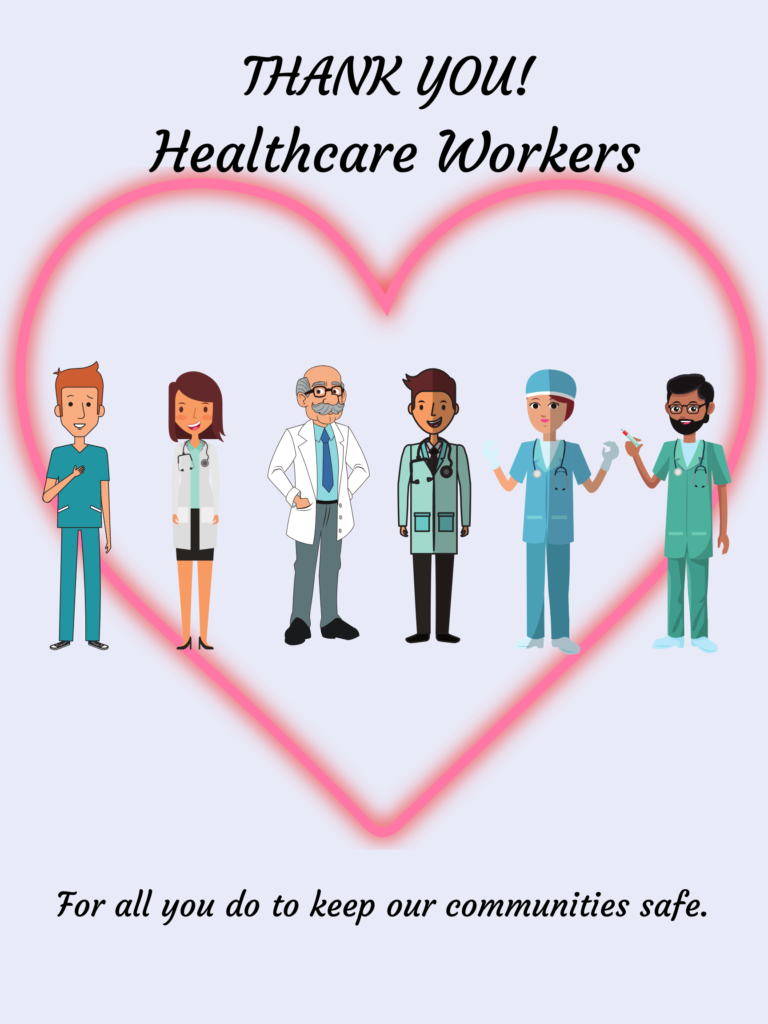 You’ll have the flexibility to work a variety of shifts and hours. Depending on the employer, you may be able to choose your own schedule. To work as a radiologic technologist, you will need a degree in radiologic technology. You’ll also need to complete an undergraduate program and you will most likely need to sit for the certification exam in your state.
You’ll have the flexibility to work a variety of shifts and hours. Depending on the employer, you may be able to choose your own schedule. To work as a radiologic technologist, you will need a degree in radiologic technology. You’ll also need to complete an undergraduate program and you will most likely need to sit for the certification exam in your state.
Working as a “rad tech” can be an incredibly rewarding career. Typically, you won’t have to interact with large groups of people. Depending on the environment you choose to work in, you may even be able to work by yourself. You’ll still be expected to work with patients and provide good quality care. However, you’ll have less pressure on you to make quick decisions. You can work in a small hospital, an urgent care clinic, or an independent doctor’s office.
Why this career is great for introverts: Much of your day will involve working with patients, but you’ll have less pressure on you to make quick decisions.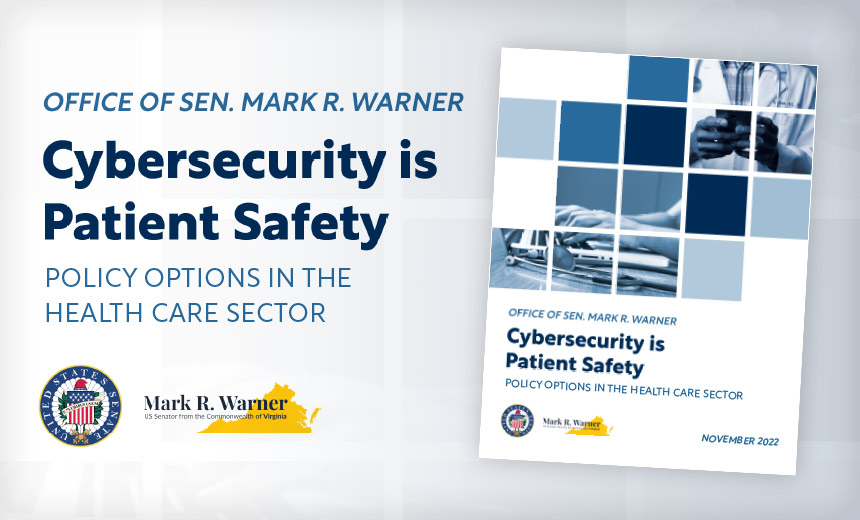 You can work in a small or large hospital setting. You can also structure your position in a way that works for you.
You can work in a small or large hospital setting. You can also structure your position in a way that works for you.
Radiation Therapist
A radiation therapist works with patients who are being treated for cancer, and they also work with other patients who require radiation treatments. Radiation therapists typically work in a healthcare setting, such as a hospital during regular business hours. In order to become a radiation therapist, you’ll need a minimum of an associate’s degree in radiologic technology, and you will need to pass the board exam.
Working as a radiation therapist requires great attention to detail. You will also need to be empathetic and compassionate towards patients, and you’ll need to be able to troubleshoot equipment when needed. In addition to treating patients, you may also be responsible for scheduling patients and performing clerical work. Shadowing an oncology clinic is a great way to observe the workflow and gain a more thorough understanding of this career.
Why this career is great for introverts: You can work during regular business hours and use innovative medical equipment.
Medical billing specialist
A medical billing specialist works in the healthcare industry by processing medical claims and sending invoices. They help patients gain maximum reimbursement for their healthcare expenses. To become a medical billing specialist, you’ll need a degree in healthcare or a related field. Some employers may also require you to be certified. You may also benefit from previous experience as a medical coder or office assistant. Some companies may even allow you to work remotely or from home.
Why this career is great for introverts: You may have the opportunity to work from home.
Home health aide
A home health aide provides personal and non-medical care to patients in their homes. They may also help with household tasks, such as cooking or cleaning. You’ll need to complete some training before you start working independently, but the education you’ll need is often minimal.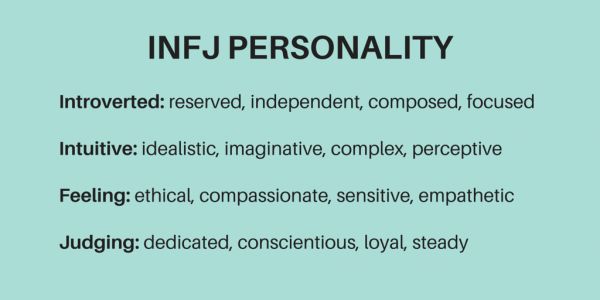 You may even be able to get your training through an apprenticeship.
You may even be able to get your training through an apprenticeship.
You’ll need to have compassion and empathy, but you won’t need to be highly skilled to become a home health aide. This means you’ll be able to work with different kinds of patients and it can also be a great job for those looking to work part-time.
The amount of stress that comes with working as a home health aide depends on who your patients are. Some patients may require more attention than others. In order to succeed as a home health aide, you’ll still need to stay organized and be able to work independently. This is a great job for people who prefer to work with patients one-on-one. You’ll be creating strong relationships with patients and making a difference in someone’s life who really needs it.
Why this career is great for introverts: You can work one-on-one with patients and make a difference in their lives. Minimal education is needed, making it a great entry-level job.
Dental assistant
A dental assistant helps the dentist perform basic tasks, such as taking x-rays and preparing treatment rooms for patients. This is a great entry-level career for someone looking to get their feet wet in healthcare. You can work in a private dental office or join the team at a chain company.
This is a great entry-level career for someone looking to get their feet wet in healthcare. You can work in a private dental office or join the team at a chain company.
If you are looking for a more advanced career, you may also want to consider being a dental hygienist. Some employers and states require formal education to work as a dental assistant. You’ll want to check and see what the requirements are for the state you wish to work in.
Why this career is great for introverts: You can work at your own pace and there are great opportunities for advancement (continuing on to be a dental hygienist). You can also work in a private dental office.
Diagnostic medical sonographer
A diagnostic medical sonographer conducts patient examinations. You’ll work with patients before, during and after procedures, and you’ll also work with doctors, radiologists and other members of the medical team.
You can expect to complete a formal education in order to become a diagnostic medical sonographer. You’ll typically need to complete an associate’s degree program in sonography or diagnostic medical sonography, and you may also need to sit for certification in your state. This is a respectable career that will allow you to work in a variety of settings. You can work in a private doctor’s office or a larger medical center.
You’ll typically need to complete an associate’s degree program in sonography or diagnostic medical sonography, and you may also need to sit for certification in your state. This is a respectable career that will allow you to work in a variety of settings. You can work in a private doctor’s office or a larger medical center.
You’ll also need to have a compassionate and empathetic nature, as well as a high level of integrity. This is a job that demands strong communication skills on your part, as you’ll need to convey images and information to colleagues. Some diagnostic medical sonographers also need to be able to develop and maintain good relationships with patients.
Why this career is great for introverts: You can work independently and this career offers many opportunities for advancement.
Patient services representative
A patient services representative works in a hospital and offers assistance to patients and families. This is a good job for someone who is patient, empathetic, and good at listening and troubleshooting.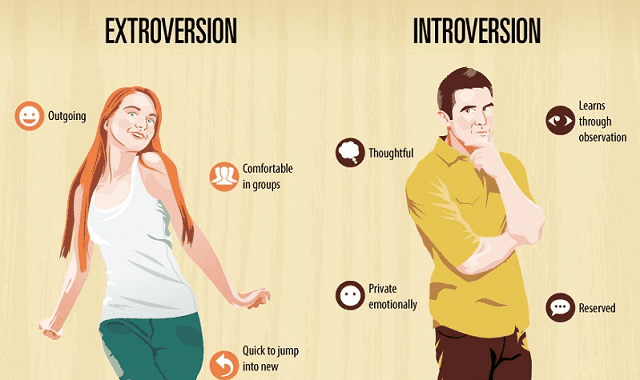 To qualify for this job, you’ll need a high school diploma or GED. You may also need some on-the-job training.
To qualify for this job, you’ll need a high school diploma or GED. You may also need some on-the-job training.
Depending on the hospital, your tasks may vary. You’ll help patients with billing and insurance questions, as well as scheduling appointments. This is a job that requires a lot of patience and understanding. You’ll also need to be dependable and trustworthy, as you will have access to confidential information about patients.
This is another healthcare career that allows you to work one-on-one with patients and their families. With this job, you’ll also be able to work in different settings and you can choose where and when you want to work.
Why this career is great for introverts: It’s an entry-level job that allows you to work in a variety of settings with different schedule options. You can choose which hours will work best for you. You’ll also be able to get started quickly, and it doesn’t require much education.
Surgical technician
A surgical technician works in an operating room, assisting during surgeries. You’ll be responsible for getting equipment together and assisting the surgeon during procedures. Before you can start this job, you have to complete an associate’s degree program. You’ll also need to attend on-the-job training before you begin working independently.
You’ll be responsible for getting equipment together and assisting the surgeon during procedures. Before you can start this job, you have to complete an associate’s degree program. You’ll also need to attend on-the-job training before you begin working independently.
This can be an exciting job as you will have the opportunity to witness procedures and surgeries in the hospital.
Why this career is great for introverts: Some people may prefer this type of work over working with patients directly. Patients are typically not awake, as they are undergoing surgery.
Medical transcriptionist
As a medical transcriptionist, you’ll listen to physician dictations and produce medical reports. You’ll be part of a team made up of physicians, medical assistants and other healthcare professionals. Typically, you will need formal education to work as a medical transcriptionist.
You will also need computer skills and an understanding of medical terminology. You should also have good English grammar skills. Many companies may also offer on-the-job training. This is a good option if you are interested in working in healthcare, but not directly with patients.
You should also have good English grammar skills. Many companies may also offer on-the-job training. This is a good option if you are interested in working in healthcare, but not directly with patients.
Why this career is great for introverts: You will be working primarily on the computer and you may be able to set your own schedule. There is no direct patient care involved.
Medical coder
A medical coder reviews patient charts and assigns a code for each procedure or visit to a physician. This code is used to determine what each patient visit or treatment will cost. You’ll likely need to complete an associate’s degree program to work as a medical coder. You may also need to take courses in anatomy and medical terminology as part of your degree program.
You’ll probably start out by working with a more experienced coder and attending training sessions. Then, you’ll work independently. This is a job that requires being detail-oriented and following strict guidelines for coding procedures and diagnoses. Medical coders work in hospitals, outpatient clinics and private doctor’s offices. You may also work in insurance companies or medical billing services.
Why this career is great for introverts: You can work independently at your own pace. You may also be able to set your own hours, depending on the job and employer. Most medical coding jobs are full-time positions.
Veterinary technician or assistant
A veterinary technician works in a vet’s office and helps care for animals who are sick, injured or undergoing surgery. You’ll need to complete an associate’s degree program before you start this job. You may also be required to sit for certification in your state, which typically involves taking classes and passing an exam.
In this job, you’ll need to have a high level of patience and understanding. You will also need physical strength and stamina, since you may need to restrain animals who are sick or injured.
Some veterinary technicians and assistants may also need to perform laboratory tests and prepare medications and other solutions. Many work full-time with some night or weekend hours. This is a good job for an introvert who may prefer to work with animals instead of people.
Many work full-time with some night or weekend hours. This is a good job for an introvert who may prefer to work with animals instead of people.
Why this career is great for introverts: You can work in several settings and with animals instead of people. Most veterinary positions are full-time positions; however, there may be some opportunities for part-time work.
Medical laboratory assistant
A medical lab assistant helps with the day-to-day operations of a medical laboratory. You’ll typically need to complete an associate’s degree program before you start working in this field. However, some companies may accept a high school diploma and provide training.
You’ll need to be detail-oriented and follow strict safety guidelines, such as those that involve using sterile techniques when collecting specimens. You may also need computer skills and knowledge of medical laboratory equipment.
Why this career is great for introverts: You can work independently in a laboratory instead of at the bedside caring for patients.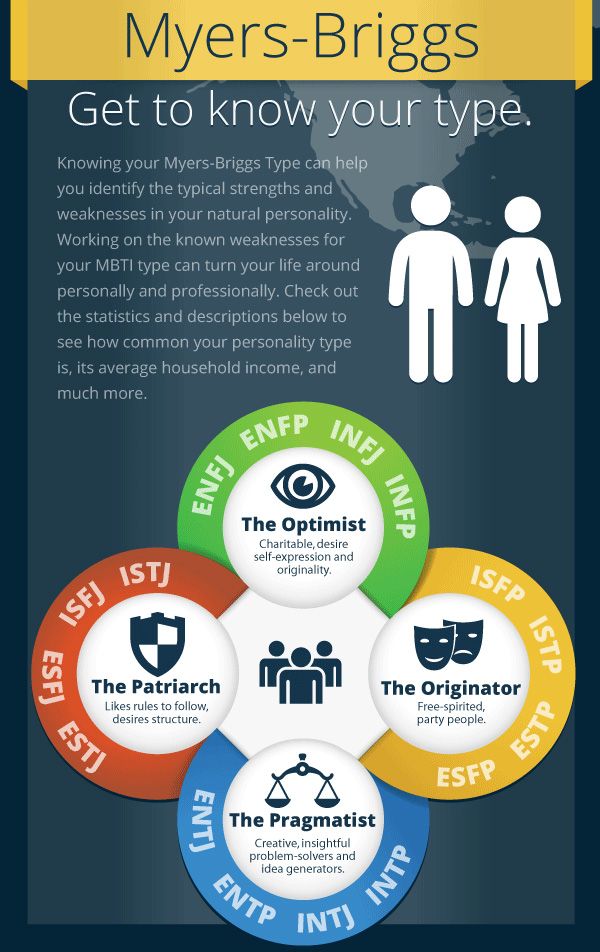 Most positions are full-time with some day and night hours.
Most positions are full-time with some day and night hours.
Pharmacy technician
A pharmacy technician typically works in a drug store. Depending on the employer, you’ll be responsible for filling prescriptions, billing, and providing customer service. You’ll need to complete an associate’s degree program before you can start this job. In addition, most states require you to become certified. This involves passing an exam. You’ll likely work in a team with pharmacy staff, pharmacists and other technicians.
While you may not be required to make decisions on-the-spot, this can still be a hectic job, as many of the prescriptions you fill need to be ready on time.
Why this career is great for introverts: Most positions are full-time with some day and night hours. You won’t be required to make quick decisions under pressure.
Dietitian
A dietitian works with people to improve their eating habits, typically in hospitals or health care clinics. You’ll need a bachelor’s degree in dietetics, nutrition or food science. Working as a dietitian can be emotionally demanding, as you’ll have to deal with some complex health problems. You may also need to work with people who are suffering through stressful personal problems.
You’ll need a bachelor’s degree in dietetics, nutrition or food science. Working as a dietitian can be emotionally demanding, as you’ll have to deal with some complex health problems. You may also need to work with people who are suffering through stressful personal problems.
Why this career is great for introverts: You may be able to work independently in an office, or in a small hospital seeing patients one-on-one. You’ll be making a positive difference in people’s lives.
Licensed practical nurse
A licensed practical nurse, or LPN, provides hands-on care to patients. You’ll be responsible for monitoring patients’ conditions and doing basic procedures, such as taking patients’ blood pressure and giving out medication. Contrary to popular belief, introverts can be great nurses! It all depends on what environment you choose to work in. This is not a job for introverts who need to spend most of their time at home alone in peace.
You’ll need to complete an associate’s degree program. You’ll also need to pass the National Council Licensure Examination for Practical Nurses (NCLEX-PN).
You’ll also need to pass the National Council Licensure Examination for Practical Nurses (NCLEX-PN).
Why this career is great for introverts: Depending on where you want to work, you may be able to choose a position that fits your personal schedule. You can work in a small doctor’s office, a school, or even explore some home health options.
The medical field is always in need of compassionate, caring people who are willing to go the extra mile. If you like helping others and are seeking a stable career, then healthcare might be a great option for you.
Are you an introvert? Are there any other healthcare jobs for introverts that I missed? Let me know in the comments below! If you are looking to help boost your career search, check out these positive affirmations for landing your dream job.
Health care careers for introverts • BUOM
Career preferences may differ from one person to another depending on their personal qualities. While extroverts may be more outgoing and enjoy social jobs, introverts may enjoy jobs where they can work alone or with minimal interference. While many see healthcare as a field full of social interaction, some career options involve less patient care. In this article, we provide examples of various health care professions with limited interaction that introverts may find helpful.
While many see healthcare as a field full of social interaction, some career options involve less patient care. In this article, we provide examples of various health care professions with limited interaction that introverts may find helpful.
8 health care careers for introverts
Introverts prefer to think and solve problems rather than engage in constant social interaction. At work, they may feel better in small individual offices rather than open-plan offices. They may prefer a calm, quiet work environment to get the most out of any project. The following health professions provide work environments that introverts may enjoy:
1. Medical transcriptionist
Average annual salary: $28,990 per year
Key Responsibilities: The Medical Transcriptionist works independently to transcribe audio recordings of other medical professionals into written documents. They transcribe medical records, operation logs, hospital discharges, and other medical records. Because of their tendency to think rather than talk, introverts can have excellent listening skills that can be useful for this role. Other useful skills may include fast typing speed, accuracy, and knowledge of medical terms.
Because of their tendency to think rather than talk, introverts can have excellent listening skills that can be useful for this role. Other useful skills may include fast typing speed, accuracy, and knowledge of medical terms.
2. Billing Specialist
Average annual salary: $31,785 per year
Key Responsibilities: The Medical Billing Specialist performs an administrative role. These healthcare professionals manage billing documents as they pass between patients and the healthcare or insurance agency. They inform patients of their financial and insurance information, process payments and issue invoices. Billing professionals often work most of the day in offices and at computers. Although this position includes some customer service responsibilities, the work environment may suit introverts as most communication takes place over the phone or video calls rather than in person.
3. Nutritionist
Average annual salary: $41,516 per year
Key Responsibilities: A dietitian is a healthcare professional who provides individualized advice to patients about eating habits, diet, and general well-being. They often work with other healthcare professionals, such as trainers and nurses, to monitor changes in clients' diets. After analyzing the client's information, they make nutrition recommendations and monitor changes in the client's diet. Introverts may like this position because it involves less social interaction than other healthcare roles and more planning and preparation. An interest in the effects of diet on the body is an important skill for this position.
They often work with other healthcare professionals, such as trainers and nurses, to monitor changes in clients' diets. After analyzing the client's information, they make nutrition recommendations and monitor changes in the client's diet. Introverts may like this position because it involves less social interaction than other healthcare roles and more planning and preparation. An interest in the effects of diet on the body is an important skill for this position.
4. Health Information Specialist
Average annual salary: $45,112 per year
Key Responsibilities: The Health Information Specialist studies medical terms and software systems used by healthcare professionals around the world. Their duties include reviewing patient data and checking to confirm the clarity and accuracy of the records. Their roles usually include little social interaction and more technical work with hardware or software. Health information professionals can complete at least a two-year associate's degree program at a recognized institution and be licensed by the American Registry of Radiologists (ARRT). Health information professionals may have good mathematical, analytical and health software skills.
Health information professionals may have good mathematical, analytical and health software skills.
5. Medical Lab Technician
Average Annual Salary: $50,079 per year
Key Responsibilities: Medical Lab Technicians are healthcare professionals who use laboratory equipment to analyze blood and tissue samples to determine a patient's health status. They collect samples and study cells, but rarely interact directly with patients. Introverts may enjoy the opportunity to work alone or in small groups with testing machines and other equipment. Most medical laboratories are located in secure locations within their premises and are not accessible to patients. Medical laboratory technicians must complete at least a two-year associate's degree in medical laboratory technology or a related field to begin this career.
6. Radiology Technologists
Average Annual Salary: $56,724 per year
Key Responsibilities: Radiation Specialists, also known as radiologists, are medical experts who work with imaging equipment such as x-ray machines, CT scans, magnetic resonance imaging and other advanced technologies used for diagnosis. They use these machines to locate parts of the body that may require medical attention. Interaction with patients is limited to short periods before, during, and after procedures, which may appeal to introverts. To pursue this career, candidates can benefit from mechanical ability and analytical skills due to the constant use of technology.
They use these machines to locate parts of the body that may require medical attention. Interaction with patients is limited to short periods before, during, and after procedures, which may appeal to introverts. To pursue this career, candidates can benefit from mechanical ability and analytical skills due to the constant use of technology.
7. Surgical Technician
Average annual salary: $69,773 per year
Key Responsibilities: Surgical Technicians are medical professionals who provide technical support to surgeons during operations. In addition to assisting surgical operations, they prepare operating rooms and organize equipment. Although they spend a lot of time with patients in the course of their work, it often takes place in the operating room and hardly speaks. Surgical technicians must have completed at least an associate's degree in surgical technology or a related field. Active listening and detailed attention are skills that can be useful for surgical technicians.
8. Health Administrator
Average annual salary: $70,221 per year
Main duties. Health administrators, also known as health service managers, are professionals who work in hospitals and ensure that the duties of nurses, doctors, and other healthcare professionals are closely coordinated. Administrators can plan shifts and control the hospital budget. They use budget information to reject or approve purchases the property makes. Introverts might consider managing healthcare because they spend a lot of time on individual projects. Health service administrators must earn a bachelor's degree in health management. Those who help work in this area can benefit from productive budgeting and oversight skills.
Another 5 medical professions for introverts
Additional courses in the healthcare niche, which introverts find attractive and convenient for work, include:
-
Biostastics
-
Medical Coding
-
Administrative assistant
-
Medical Specialist
Biomedical Engineer
Career options for introverts.
 Career for introverts. How to gain credibility and get a well-deserved promotion Career options for introverts. Career for introverts. How to gain credibility and get a well-deserved promotion
Career for introverts. How to gain credibility and get a well-deserved promotion Career options for introverts. Career for introverts. How to gain credibility and get a well-deserved promotion WikiReading
Career for introverts. How to gain credibility and get the promotion you deserve
Enkovitz Nancy
Contents
Career options for introverts
To what extent does your current profession match your personality type? At work, do you have to be in a state of full readiness all the time, or are there enough pauses, quiet times when you can put your thoughts in order? “Introverts come from all walks of life,” says Shoya Zichy, author (with Anne Bidow) of Career Match. – However, most of them prefer such professions as biologists, engineers, programmers, economists and writers. These specialties involve more individual than collective work. On the contrary, for an extrovert, according to Zichy, it is typical to choose the profession of a specialist in emergency medical care, the head of a non-profit organization, a real estate manager, a sports commentator and a politician. You can probably understand why introverts avoid these hectic activities. What profession would be most comfortable for you?
On the contrary, for an extrovert, according to Zichy, it is typical to choose the profession of a specialist in emergency medical care, the head of a non-profit organization, a real estate manager, a sports commentator and a politician. You can probably understand why introverts avoid these hectic activities. What profession would be most comfortable for you?
Many of the top 30 fastest-growing jobs—according to the US Bureau of Labor Statistics projections for 2006-2016—are well suited to introverts, given their age-old willingness to immerse themselves in a world of ideas and concepts. These specialties include: network and data communications analytics, software development, personal financial counseling, veterinary and pharmaceutical sciences 1 .
My own personality type is perfect for my chosen career as a business communications mentor. Now, after trying to make a career on Wall Street, I have finally found something to do: listening to people, building long-term and deep personal relationships with them, developing individual strategies for my clients and solving their problems.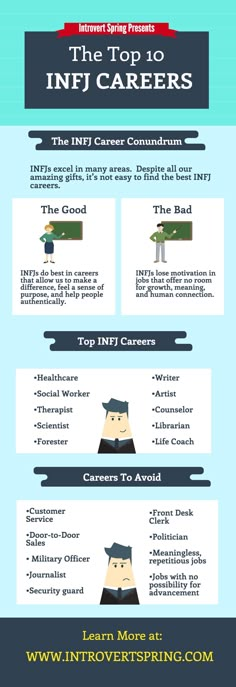 All of these activities bring out my introverted qualities. None of these activities burden me; on the contrary, they energize me.
All of these activities bring out my introverted qualities. None of these activities burden me; on the contrary, they energize me.
I hope you do what you like and what suits your personality. Otherwise, I advise you to change your occupation and find a job that you like - or at least find a way to include activities that give you pleasure in your time off from your main job. If your current job is only good because it brings in a good income and helps you get through difficult times, I would like to give you a little optimism: if you consistently and persistently strive to make a career in the field that best suits your character and strengths, then you will definitely find something to your liking.
Richard Balls' classic book What Color Is Your Parachute?[25] will help you analyze different career options and find the right job. For those who already have several specialties, it is useful to read the book One Person / Multiple Careers by Marcy Alboer. If you have chosen the corporate path, but are wondering what to do next, take a look at the book Escape from Corporate America by Pamela Skillings.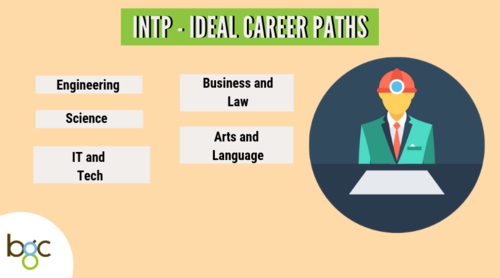 There are a couple of other books in the job seeker series specifically for introverts: Careers for Introverts & Other Solitary Types by Blythe Keimanson; and 200 Best Jobs for Introverts by JIST editors and Dr. Lawrence Shatkin. Check out Sharon Goode's work, including The Tortoise Workbook e-book, for her unobtrusive and wise approach to moving toward your goal at your own pace is the best option for many introverts. Of course, some of the listed authors have posted a lot of useful information on websites and blogs. You can also use the services of mentors or career consultants to help you develop a job search strategy.
There are a couple of other books in the job seeker series specifically for introverts: Careers for Introverts & Other Solitary Types by Blythe Keimanson; and 200 Best Jobs for Introverts by JIST editors and Dr. Lawrence Shatkin. Check out Sharon Goode's work, including The Tortoise Workbook e-book, for her unobtrusive and wise approach to moving toward your goal at your own pace is the best option for many introverts. Of course, some of the listed authors have posted a lot of useful information on websites and blogs. You can also use the services of mentors or career consultants to help you develop a job search strategy.
Once you have decided what your next professional career should be like (or at least what the next steps in finding the right job should be), we will think about how to get it. There is no single correct way to present yourself, and there is no single correct line of conduct during an interview (if only because all interviewers are different). If you are well prepared for the interview, you can clearly articulate your thoughts and understand the ideas of the interlocutor, then you will be perceived as a worthy candidate for a job.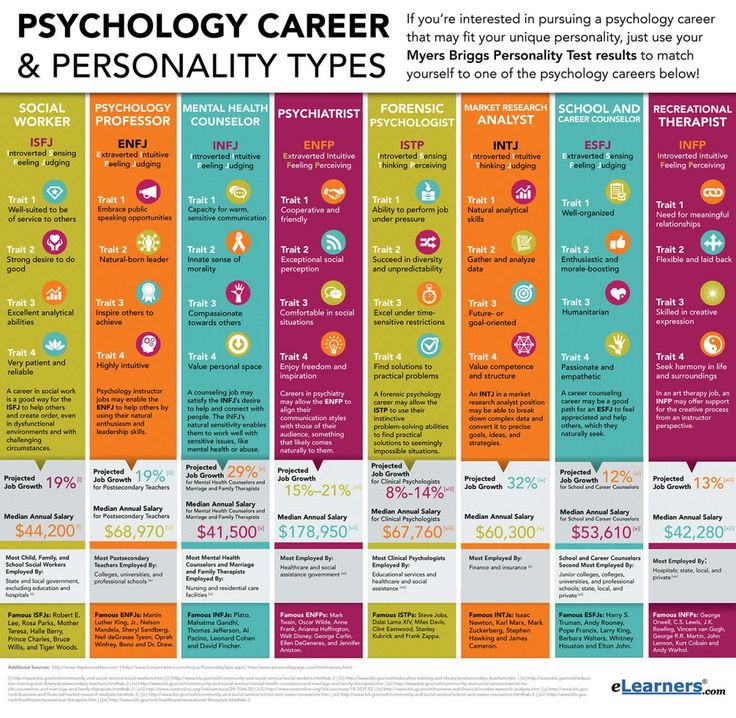 Since the purpose of this chapter is to help you succeed in your interview and get the job you want, it contains a lot of useful tips and valuable life observations. I recommend that as you become familiar with them, use them in practice and improve your skills as an applicant.
Since the purpose of this chapter is to help you succeed in your interview and get the job you want, it contains a lot of useful tips and valuable life observations. I recommend that as you become familiar with them, use them in practice and improve your skills as an applicant.
10.5. Career Development
10.5. Career Development Career development depends primarily on the employee himself. At the same time, it is necessary to keep in mind a set of conditions that make this possible: 1) the results of work in the position held. Successful performance of job duties is essential
1.4.5 Future career opportunity
1.4.5 Future career opportunity As stated above, there are situations where being "invited" to a hopeless project runs the risk of making future promotions contingent on the success of the project and the recognition it receives. Often
Often
Career start
Carier start The ideal option is a job you love, with which you are doing a great job, while earning a lot of money. Real - to get decent money for the job that you will be offered. Unfortunately, it is very difficult to find a favorite and at the same time highly paid job
CAREER DYNAMICS
DYNAMICS OF CAREER Career planning should be based on an understanding of career dynamics. She describes how careers develop, the ways in which people either climb up the corporate ladder when they are promoted, or by expanding and enriching their roles and taking on
CAREER PLANNING
CAREER PLANNING Career planning takes all the information provided by the organization's requirements assessments, performance and potential assessments, leadership succession plans, and translates it into the language of individual career development programs and
Accumulation of career consequences
Accumulating Career Consequences Whether our "customers" are internal or external, we must be careful: they will apply more severe penalties for procrastination and delays than for honest mistakes or correctable omissions in quality.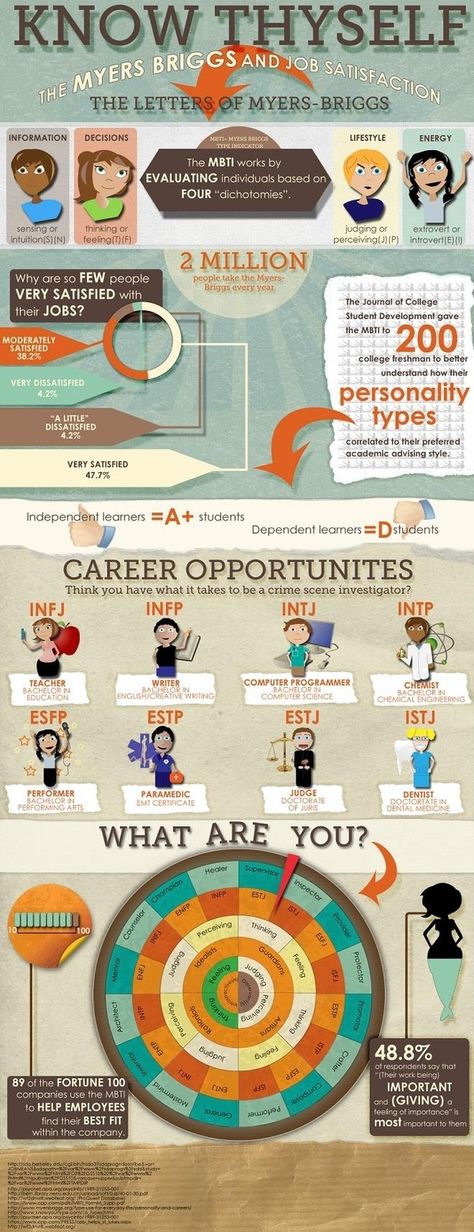 Why? Because
Why? Because
Career start
Carier start Managing Perceptions The early stages of professional life are like a whirlpool. Drawn into an unfamiliar environment, you must understand what the organizational culture of your company is and what efforts you must make to
End of career
End of career “Come on, granny!” According to a good friend of mine, every time his grandmother posts on social networks, he experiences the most negative emotions. “She thinks she is talking to her friends in her kitchen and doesn’t realize that in fact all
Tips from introverts
Tips from introverts I hope this detailed list has helped you choose five activities for your own marketing mix. Now we will get better acquainted with some of them, already successfully tested by other introverts.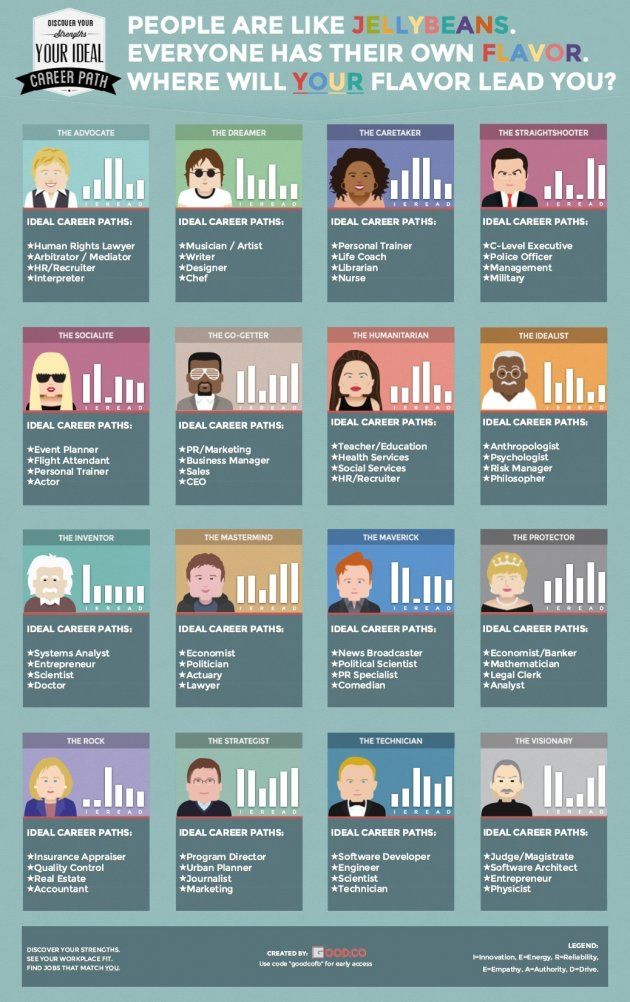 After studying them in detail, you will understand which
After studying them in detail, you will understand which
"Telephone advice" for introverts
"Telephone Tips" for Introverts 1. Put on headphones so that your hands are free - it will be easier to take notes.2. Write down, so as not to forget, the main theses of the upcoming conversation.3. Before you call, take a few deep breaths.4. Carry out "Check
Chapter 7 Job Search The Art of Interviewing for Introverts
Chapter 7 The Art of Interviewing for Introverts The hiring manager or HR department of the company you want to work for has taken note of you. Thanks to the ability to competently communicate with people on the phone, you were able to quickly
Tips for introverts
Tips for introverts 1. Be ready to talk on trifling topics - this is the best way to connect with an extrovert interlocutor.



